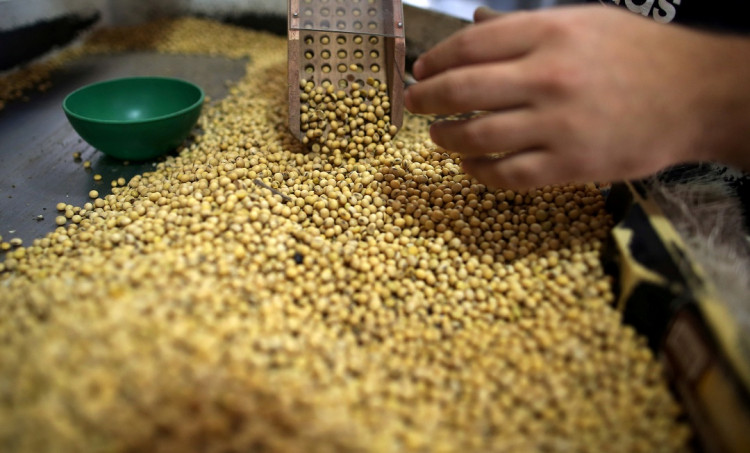As a direct response to US President Donald Trump's tariff threats on additional Chinese imports, China announced late last week that it was going to be imposing additional tariffs of its own on more than $75 billion worth of US goods.
The proposed new tariffs on US imports will include a 5 percent levy on all US soybeans and a 10 percent levy on US pork. Other agricultural products that are on China's list include US corn and cotton products. China plans to impose the tariffs on September 1, around the same time as the US' planned tariffs on additional Chinese imports.
Following the news of China's tariffs on US imports, Soybean futures plummeted, erasing its early gains. Soybean futures closed with a 1.4 percent decrease on Friday. Similarly, US hog and cotton futures experienced declines following China's announcement.
Other agricultural-related stocks also dropped significantly. Some of the bigger declines were share prices of tractor maker Deere & Co and agricultural crop handler Andersons Inc.
According to the president of the American Soybean Association, Davie Stephens, the escalation of the trade dispute will only serve to worsen the situation of American soy growers in the long-term.
Majority of the soy growers apparently now have a surplus of crops, mostly because of unsold products from the past season and the new harvests from this season.
China is currently the world's top importer of soy and soy products. The country had already halted most of its orders of US agricultural products as the trade dispute between two of the world's largest economies worsen. It also has a standing 25 percent tariff on a number of US agricultural products.
Analysts have stated that China's threat to impose additional tariffs on US agricultural products really doesn't have any immediate effects as the country is already not buying from the US anyway. Because it already is not an active buyer of US agricultural products, the announced threat is likely just a political statement.
Chief economist at INTL FCStone, Arlan Suderman, mentioned that China's proposed tariffs are nothing more than a way for it to make headlines. Even if the country does impose the tariffs, it will apparently not change the number of soybeans going to China from the United States.
Following the tit-for-tat measures, the Trump administration has been getting increased criticism from the American farm community. Most have condemned the country's year-long trade dispute with China and Trump's continued actions that only seem to worsen the situation.
After shying away from buying US agricultural products, China has turned to other suppliers. With the recent escalations in the trade dispute, demand for South American soybean has skyrocketed.






